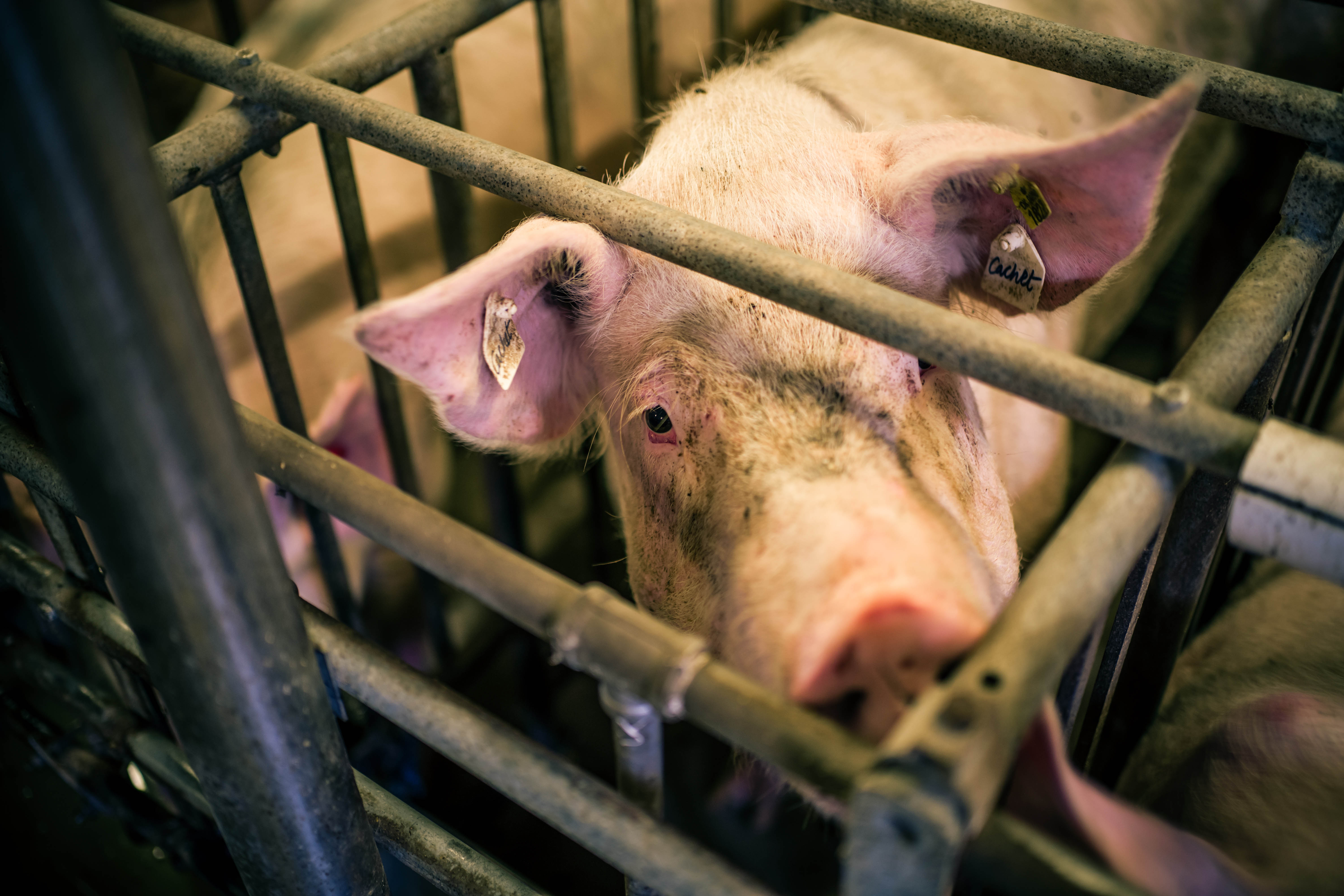
Biosecurity is and should be the basis of any disease control program. If you have a good biosecurity to begin with, disease prevention through vaccination or other applications will be more successful, resulting in a minimal need for curative treatments. For any disease coming from bacteria, viruses, yeast, fungi or parasites, the appropriate biosecurity measures, hygiene procedures and product protocols ensure successful disease control.
AFRICAN SWINE FEVER (ASF):
ASF is a highly contagious, fast spreading and deadly viral disease affecting domestic pigs and wild boars. There are neither vaccines nor cures. Healthy pigs become infected by: Direct contact with infected animals, contact with anything contaminated by the virus, Ingestion of meat or meat products from infected animals – kitchen waste, feed, infected wild boar and bites by infectious ticks.
Symptoms: High fever, loss of appetite, lethargy, skin bleeding and bloody diarrhea. In addition, there is an acute mortality.
SALMONELLA:
Salmonella, an intestinal bacteria, cause inflammation and necrosis of the small and large intestines, resulting in diarrhea. Infection with certain serotypes may be accompanied by generalized sepsis. Pigs of all ages are susceptible; however, intestinal salmonellosis is most common in weaned and growing-finishing pigs.
Symptoms: Lack of appetite, watery yellow diarrhoea, fever up to 105 - 106°F (40.5 to 41°C) and sudden death.
PORCINE REPRODUCTIVE AND RESPIRATORY SYNDROME VIRUS (PRRSV):
The PRRS virus is a highly contagious virus that can cause fertility problems and respiratory problems. PRRSV is introduced to a farm mainly through the purchase of infected animals, through the purchase of infected semen and through other vectors (vehicles, visitors, etc.).
Symptoms: Anorexia, fever, lethargy, depression, reproduction problems.
COLIBACILLOSIS:
Colibacillosis caused by Enterotoxigenic Escherichia coli strains (ETEC strains) can provoke watery diarrhea. This can lead to significant death in neonatal piglets. This so-called enterotoxigenic form of colibacillosis can also occur in older, unweaned and weaned piglets.
Symptoms: Diarrhea, progressive dehydration, hair coat becomes roughened, body temperature often is subnormal, shivering often is noted.
PORCINE EPIDEMIC DIARRHEA VIRUS:
The PED virus is a coronavirus that infects the small intestine of pigs. The virus is mainly spread and transmitted through manure. Purchase of animals and transport of animals increases a real risk for the introduction of PEDv. There is no vaccine available in Europe against the viral disease and animals can only be treated with symptom control.
Symptoms: Diarrhea and dehydration, reduced growth and high mortality.